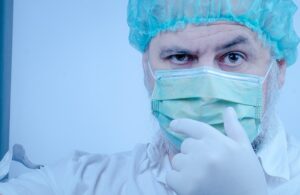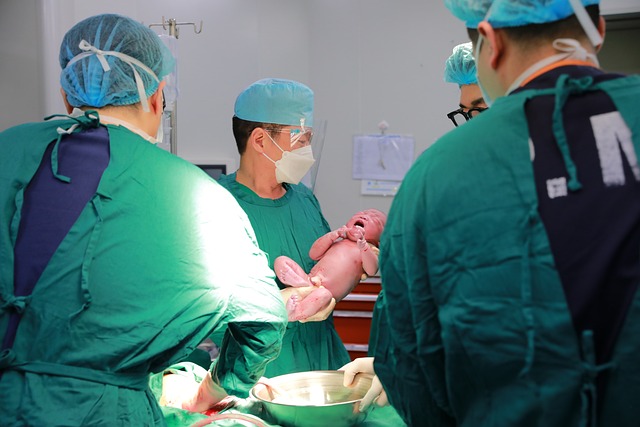Our immune system’s response to a vaccine also depends on how we were born, whether by normal delivery or by operation (C-section), according to new research from Scotland and the Netherlands.
The study found that normal delivery or natural births produced twice as many antibodies after vaccination compared to babies born by operation (C-section).
Experts say the reason for this difference is the good immune-boosting bacteria that accumulate in our bodies at birth.
Although babies born by operation also have immunity or natural protection, they may need to be given extra doses of probiotics or vaccines than babies born by normal delivery.
The moment we are born is a time when we emerge from the germs of our mother’s womb into a world teeming with microscopic microbes.
Microbes (bacteria, fungi, viruses and protozoa) make our bodies their home and eventually outnumber our ‘human’ cells.

If we come into this world naturally, i.e. without surgery, the microbes from which we are first fertilized are present in our mother’s vagina. But if you’re born by operation or C-section, your way into this world is different, and the germs you’re born with are those found on human skin or in the air in hospitals and homes. are
In a recent study, experts from the University of Adambara and the University of Utrecht in the Netherlands were examining the effects of these microbes on the various vaccines given to us after birth.
For this purpose, experts studied the stools of 120 newborns from the first dark green stool (meconium) to the age of one year.
The results of this study, published in the Journal of Nature Communications, showed that babies who were born vaginally had higher levels of microbes from the genus Bifidobacterium and Escherichia coli.
In light of these results, experts say that the high amount of these beneficial bacteria means that when such children are given the pneumococcal and meningococcal vaccines, the amount of antibodies that create immunity against the disease is almost doubled in them.
Microbes in our bodies have previously been shown to affect flu and tuberculosis (TB) vaccines.
Professor Debbie Bogart, head of pediatrics at the University of Edinburgh, said of the recent research that ‘the first contact between microbes and our immune system at birth is critical.’
He told me that the bacteria secrete different types of chemicals called fatty acids. These fatty acids tell our immune system to get to work. Without these fatty acids, the body’s growth of B-cells, the type of cells that make up our body’s white blood cells that fight disease, is stunted.
The infants studied in this study were all healthy, born at term, and had no other medical conditions.
What can be done about this?

C-section surgeries are frequently performed to safeguard the health of the mother or baby. Recently, a practice known as “vaginal seeding” has become popular, which involves applying the natural fluid produced by the mother to the newborn baby’s body, after it was born through C-section.
Also, in another study, the bacteria found in the mother’s stomach were injected into the baby’s body. The main purpose of all these experiments was to give the baby the microbes it could not get because of the C-section.
However, Professor Bogart says that ‘in theory, giving microbes to C-section babies like this might be the best solution, but in practice it’s a very complicated process because it can be dangerous for the baby.’
That’s why Prof Bogart says it would be ‘much safer’ to give babies born by C-section a supplement of beneficial bacteria (such as a probiotic). Another solution is to give extra doses of vaccines to C-section babies.
On the other hand, according to Professor Neil Mabbott, an immunologist at the University of Adambara, it cannot be said with certainty that a child’s high antibody production is directly related to microbes.
However, he said, ‘recent research does raise the possibility that we can improve the immune system of newborns, especially those born by operation, to improve the effectiveness of vaccines and protect these babies from other infections. Can feed useful bacteria to protect against.
Commenting on the research, bio scientist Dr George Sawa said: ‘This article is important in that it will help us better understand the factors that influence vaccines and the microbiome in infants.
The researchers noted that the study was conducted on a relatively small scale, and further research is required before any definitive conclusions can be reached.
Sharing is caring!
Dont forget to share!

